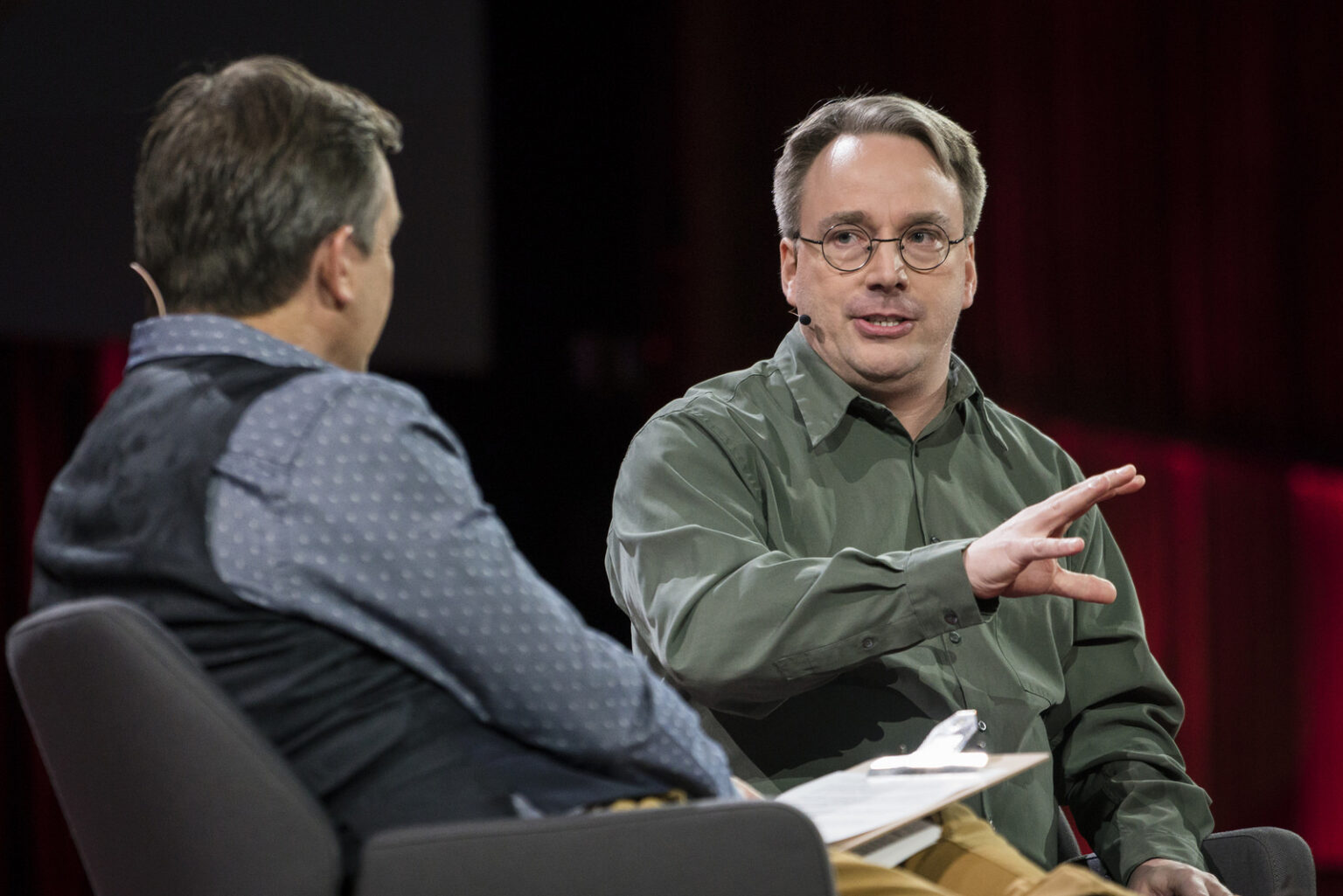
As I type this, I keep telling myself, perhaps this shamefully would be the last thing Linus Torvalds himself would do – people wasting time writing about his talk, leave alone his creation.
This would be one of my Top 10 all time favorite TED talks, which I rightfully tagged as Inspirational, – an interview of Linus Torvalds with the curator of TED, Chris Anderson.
I have watched this TED video multiple times and every time I hear him talk, it keeps me wondering how the world is still left with such glorious people on a single-minded pursuit of what they would love to do, caring a zilch about the world around us and along the way achieving some great things in life, quietly.
It is just unbelievable that a small project started by a nerdy engineer at Helsinki has turned out to be a world-class operating system – all achieved primarily over the internet, with the wisdom of crowds and a leveraging the power of a new way of organization called peering.
History and our current world is replete with examples of how hierarchy of one form or the other has always been the primary engine of power and wealth creation. For how much ever we talk about openness, collaboration and empowerment, even most of our current work culture is shrouded by a layer of management hierarchy.
We have come a full circle to terms with the economic reality of open work culture that was once seen even as an infringement on the legitimate motive of companies to make profit and to an extent that Microsoft even allowed to run linux bash on its recent Windows 10 release.
To me, what stands out in this interview on the Linux journey are some of his beliefs which he profoundly narrates with all the unpretentious humility.
He does not feel shy on talking about his lack of people skills and just listen to how many times in the entire interview he claims to be ‘not a people person’. Still, he leads and runs an open source empire which solely depends on the wisdom of crowds at its crux. In the entire discussion, Chris Anderson tries his best to unravel this mystic around Linus Torvalds.
Chris: So really, both Linux and Git kind of arose almost as an unintended consequence of your desire not to have to work with too many people.
Torvalds: Absolutely. Yes.
Sometimes, the pursuit of a goal results in a way that is complete antithesis of your beliefs – in this case the power of crowds and the openness of others to contribute to a common cause. Though he claims it to be intentional consequence of his intent, peer production today is about more than sitting in remote locations and working on a common goal. It’s about taking innovation and wealth creation to new levels, which he has successfully managed to achieve.
Here is a sample of his humility and the openness to accept what he is in a totally unassuming way.
I don’t know if it is essential. Going back to the “I am not a people person,” – sometimes I’m also, shall we say, “myopic” when it comes to other people’s feelings, and that sometimes makes you say things that hurt other people. And I’m not proud of that.
I get people who tell me that I should be nice. And then when I try to explain to them that may be you’re nice, may be you should be more aggressive, they see that as me being not nice.
On his passion for Technology and Perfection.
Good taste is about really seeing the big patterns and kind of instinctively knowing what’s the right way to do things.
…you can see a problem in a different way and rewrite it so that a special case goes away and becomes the normal case. And this is CS 101.
On being a visionary and the Tesla vs Edison comparison.
I’ve actually felt slightly uncomfortable at TED for the last two days, because there’s a lot of vision going on, right? And I am not a visionary. I do not have a five year plan. I’m an engineer. And I think it’s really — I mean — I’m perfectly happy with all the people who are walking around and just staring at the clouds and looking at the stars and saying, ‘I want to go there’. But I’m looking at the ground, and I want to fix the pothole that’s right in front of me before I fall in. That is the kind of person I am.
Linux today is an economic powerhouse with linux powered technologies, both in hardware and software generating billions for firms like Google, IBM and like.
To me the best part of the interview is the answer to the question on other companies making billions out of his software – more as a self-actualizing need of life.
… I mean, without doing the whole open source and really letting go thing, Linux would never have been what it is. And it’s brought experiences I don’t really enjoy, public talking, but at the same time, this is an experience. Trust me. So there’s a lot of things going on that makes me a very happy person and thinking I did the right choices.
The world is not a bad place after all, to quietly and meaningfully chase our dreams!




